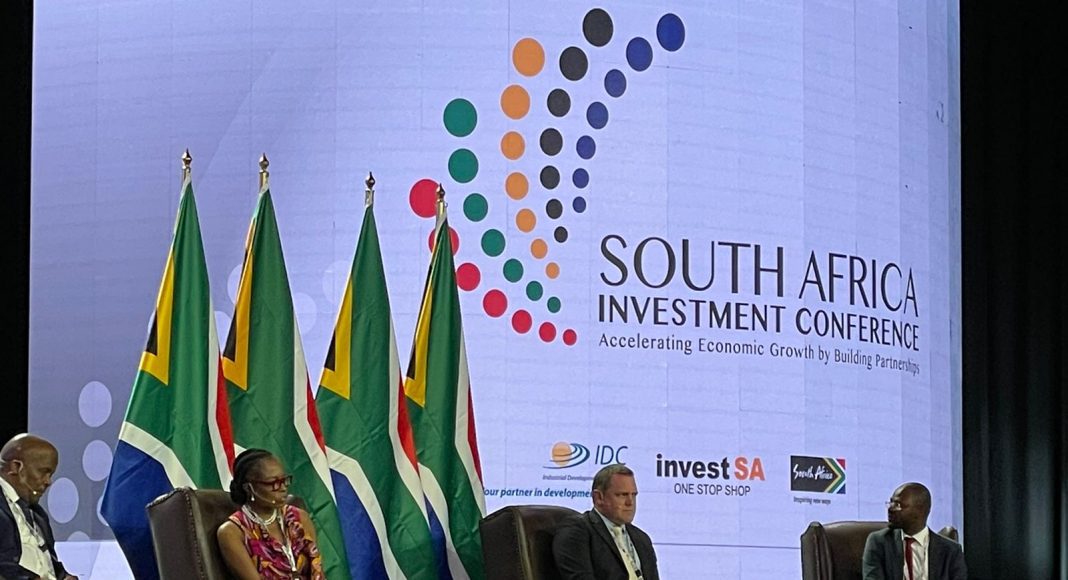SAB has pledged to pump R920-million into the Prospecton and Ibhayi breweries, summing up its investment into the ailing South African economy to R4.5-billion.
This follows the beer maker’s commitment to invest R2-billion into capital expenditure projects during its 2021 financial year.
At the 4th South African Investment Conference at the Sandton Convention Centre, SAB CEO Richard Rivett-Carnac said: “These investments will give us the capacity to not only contribute to the economy but also to be able to contribute to job creation, tax, excise and procurement spend.”
This new investment, said Rivett-Carnac, will have a great impact on jobs through direct and indirect employment, in addition to the 250 000 jobs already sustained by the beer sector. He added that the company SAB will continue to employ black suppliers to enforce impact on the investment.
“SAB’s Prospecton brewery in Durban will receive the bulk of this new investment with a total of R650-million that will help expand its facilities. This investment alone will provide a R3.1-billion additional tax revenue and generate 24 000 jobs through the full value chain.
“Additionally, the investment will generate R4.4-billion in additional GDP [gross domestic product] for the KwaZulu-Natal economy.”
The remaining R270-million will be dedicated to upgrading the Ibhayi brewery in the Eastern Cape.
He said: “The budget delivered by the minister of finance in February ensured that economic recovery was prioritised by keeping the beer excise adjustment closer to inflation. This has provided us with the financial space to grow the beer category responsibly and aid our government in our collective mission towards economic recovery and growth.”
In February, the beer giant pleaded with Finance Minister Enoch Godongwane to adjust excise tax or risk losing the brewer to other investment destinations on the continent.
Fatsani Banda, economic and excise specialist at SAB, said at the time that the company would look beyond South Africa’s borders for future investments if the government ignored its concerns.
Banda shared at the time: “While excise tax may be shrugged off as an inevitable fact of life, it is instructive that we need to step back and unpack the regime of excise taxes and the rationale for their existence.”
In 2021 the beer industry, which makes a monthly excise duty payment of about R2.5-billion to the South African Revenue Service for domestic and imported products, saw an excise tax increase of 8%.
Banda said the Covid-19 pandemic had resulted in more than 160 000 job losses, adding that the beer industry also lost about 161 trading days due to alcohol sale bans since President Cyril Ramaphosa introduced lockdown regulations and continuous alcohol bans since March 2020.
According to Rivett-Carnac, the beer industry continues to make a significant contribution to the ailing South African economy.
Citing an Oxford Economics Research paper published in 2021, Rivett-Carnac said: “The South African beer industry contributed approximately R74-billion to South Africa’s GDP in 2019, equivalent to 1.3% of national GDP.
“The sector sustained over 248 000 jobs in 2019, equivalent to 1.5% of national employment. The tax impact was approximately R45-billion in 2019, this was the equivalent of 3.3% of government revenue.
“Our position as an economic-driving multinational corporation in South Africa means we are keen to play a role in working with our government and social partners to help South Africa recover and grow.”
Also read: Adjust excise tax or kiss us goodbye, warns SAB
Follow @SundayWorldZA on Twitter and @sundayworldza on Instagram, or like our Facebook Page, Sunday World, by clicking here for the latest breaking news in South Africa. To Subscribe to Sunday World, click here.




